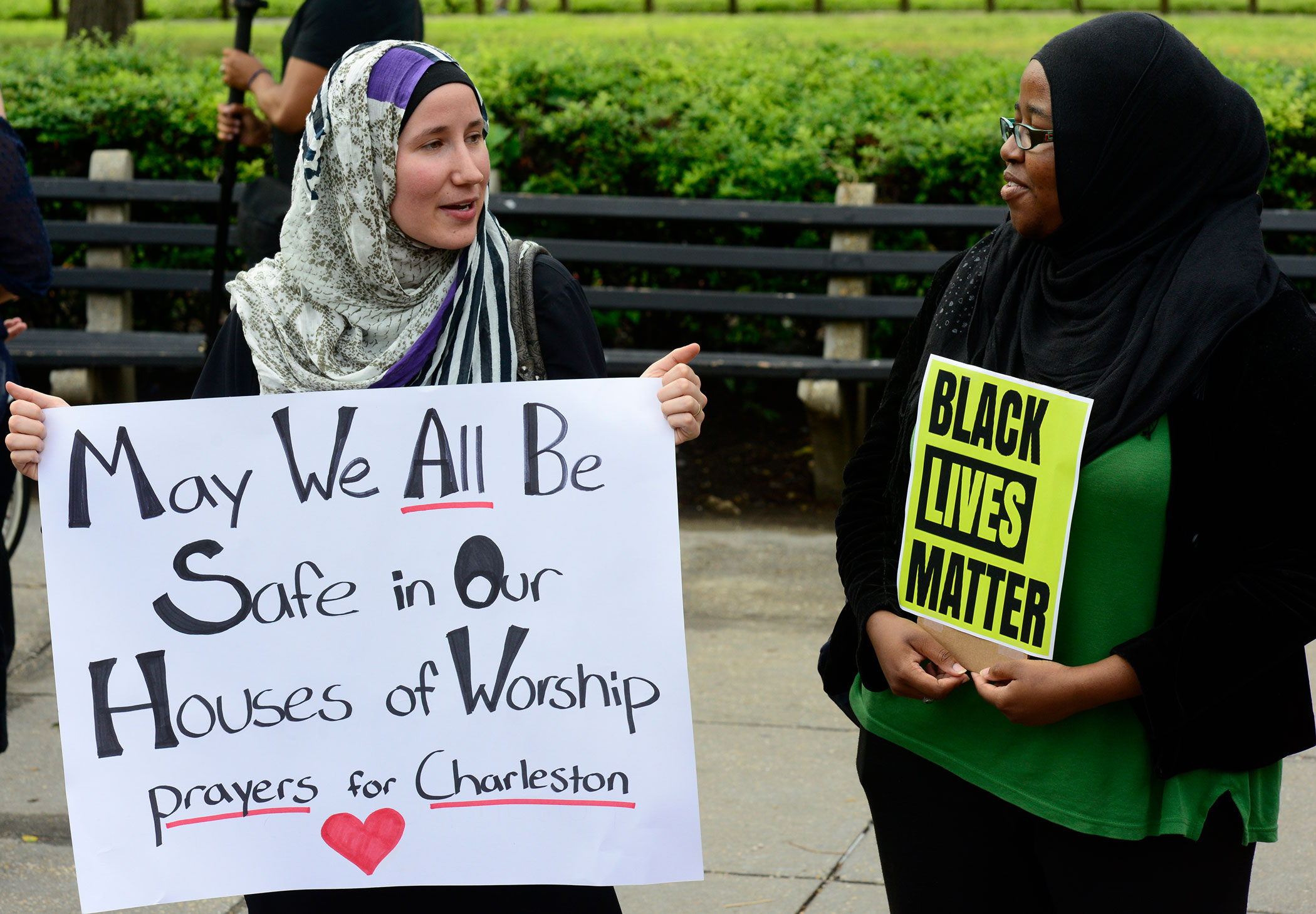
Stephen Melkisethian / CC BY-NC-ND 2.0
June 22, 2015
As we grieve, protest and further investigate the horrific murder of nine African American parishioners at the historic Emanuel AME Church in Charleston, SC, many people are asking: What should we tell the children?
Parents, family members and others are sometimes uneasy about discussing issues of violence and injustice with children because they want to protect them from terrible and scary topics. However, it is important that children have a language for discussing the unfairness and injustice they see in the world and that as adults, we model that these conversations are ones we are willing to engage in as we assure them that we are working to counteract injustice.
Except for very young children, it is important to raise the issue with children. It is likely that with online access and the 24/7 hour news cycle, many young people have already heard about it and may be looking for an opportunity to learn more. In talking with children about emotionally challenging topics, remember to:
Here are specific talking points you may want to cover with young people:
We have heard that the alleged shooter, Dylann Storm Roof, told racist jokes and spewed biased ideology. A contemporary of Roof’s said “He made a lot of racist jokes, but you don’t really take them seriously like that.” Hate has the potential to escalate and the Pyramid of Hate illustrates how biased behaviors and attitudes—when left unchallenged—can lead to more serious acts of discrimination and bias-motivated violence such as the one perpetrated in Charleston. If those attitudes, beliefs and behaviors were questioned and addressed, perhaps there would have been different outcomes and those nine lives would not have been taken.
Symbols are forms of communication that convey important messages to children about what we value, what is important and what kind of society we want to create. Hate symbols, especially when disseminated and pervasive, communicate that hate and bias are acceptable. Roof had patches on his jacket of flags of regimes in South African and Rhodesia that enforced the violent white minority rule. He was also seen in several photos with a Confederate flag, which has come to symbolize racial hatred and bigotry. Ironically, the flag is still displayed in South Carolina’s statehouse grounds in Columbia and activists and elected officials have been pressing for its removal for years.
While Roof was not a formal member of a white supremacist organization, he espoused white supremacy ideology that is prevalent, online and worldwide. In addressing this topic with young people, we need to give them hope and inspiration by showing them that we have come a long way on issues of race and other social justice issues by pushing for legislation, educating people and taking action. At the same time, it is also important that we connect the dots so that young people understand that issues such as school segregation, racial disparities in the criminal justice system and voting rights are not individual acts but are part of a larger system and that if societal change is going to take place, the solutions also need to be systemic.
Since the murders last week, there have been protests across the country and in Charleston and Columbia, SC specifically calling public officials to take down the Confederate flag as a first step. On Sunday, in a moving demonstration of empathy and connection, church bells across Charleston tolled for nine minutes to symbolize the nine victims. We know that our nation has a long history of activism that has brought about significant social change--from marriage equality to immigration reform and the recent “Black Lives Matter” movement. One of the most important principles we can convey to our children is that their voices and actions make a difference and will help to build a better world.